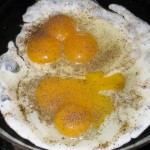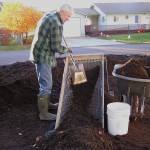by Catherine Haug, August 6, 2011
(photo by Keith Blaylock)
I just returned from a trip to Portland and was excited to learn that the Oregon legislature passed SB 805 with overwhelming bipartisan support, and was signed into law on June 17. This law, similar to legislation proposed at the national level (see U.S. Egg Industry & HSUS Collaborate on Federal Legislation for Battery Hens) “sets comprehensive animal care standards for hens,” according to the Oregon Humane Society (2). Will our Montana legislature follow suit? (more…)


